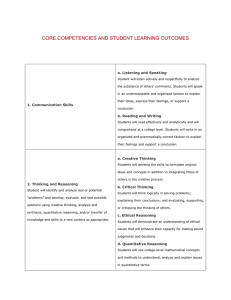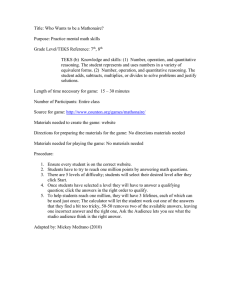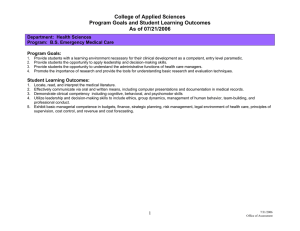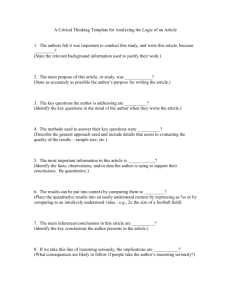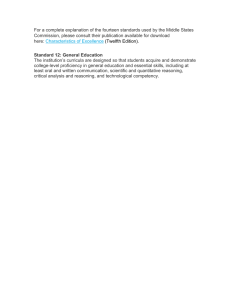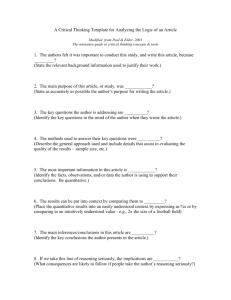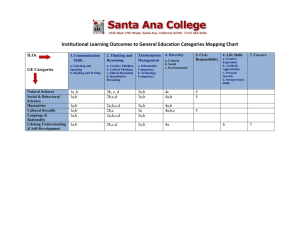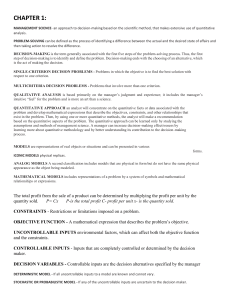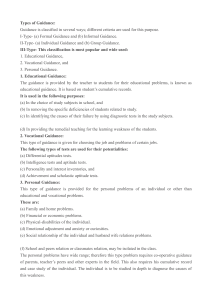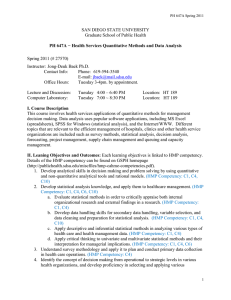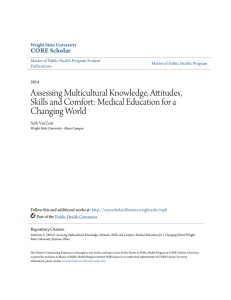Student Services Program 12/18/07 Adopted by SCC Academic Senate May 6, 2008
advertisement
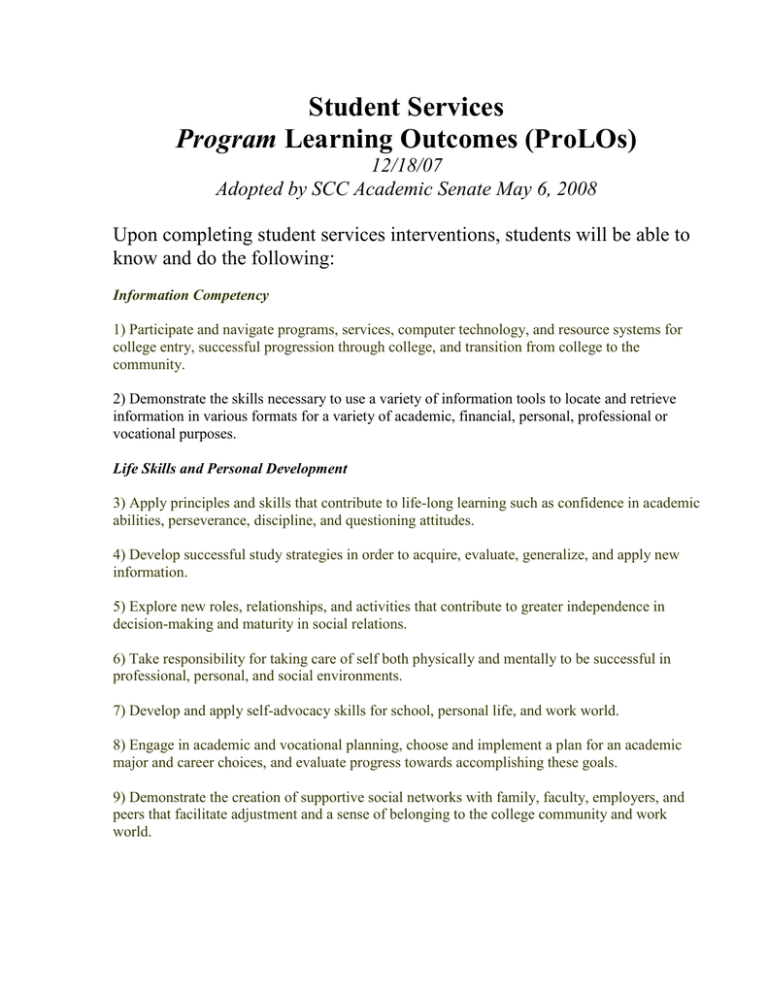
Student Services Program Learning Outcomes (ProLOs) 12/18/07 Adopted by SCC Academic Senate May 6, 2008 Upon completing student services interventions, students will be able to know and do the following: Information Competency 1) Participate and navigate programs, services, computer technology, and resource systems for college entry, successful progression through college, and transition from college to the community. 2) Demonstrate the skills necessary to use a variety of information tools to locate and retrieve information in various formats for a variety of academic, financial, personal, professional or vocational purposes. Life Skills and Personal Development 3) Apply principles and skills that contribute to life-long learning such as confidence in academic abilities, perseverance, discipline, and questioning attitudes. 4) Develop successful study strategies in order to acquire, evaluate, generalize, and apply new information. 5) Explore new roles, relationships, and activities that contribute to greater independence in decision-making and maturity in social relations. 6) Take responsibility for taking care of self both physically and mentally to be successful in professional, personal, and social environments. 7) Develop and apply self-advocacy skills for school, personal life, and work world. 8) Engage in academic and vocational planning, choose and implement a plan for an academic major and career choices, and evaluate progress towards accomplishing these goals. 9) Demonstrate the creation of supportive social networks with family, faculty, employers, and peers that facilitate adjustment and a sense of belonging to the college community and work world. Critical Thinking 10) Identify and analyze problems; creatively propose, analyze, implement, and evaluate solutions to problems. 11) Demonstrate an understanding of the way personal attitudes, values, perceptions and beliefs affect and sometimes obstruct competent reasoning. Communication 12) Develop personal and group communication, decision-making, conflict resolution, and leadership skills for successful transition and adjustment into the work world or the university. 13) Create and deliver appropriate and effective oral messages for a variety of situations, using presentation aids when appropriate. Cultural Competency 14) Develop and utilize effective communication skills in building and maintaining multicultural interpersonal relationships. 15) Demonstrate respect, appreciation, and acceptance for multicultural differences. 16) Evaluate the role of culture in identity development and construction. Depth and Breadth of Understanding - Ethics 17) Critically reflect and evaluate moral and ethical responsibilities as a world citizen, building a larger consciousness and purpose beyond self. Quantitative Reasoning 18) Extract, organize, and analyze quantitative data for financial planning. 19) Apply quantitative methods to problem solving and decision making for school, work, and home life.

